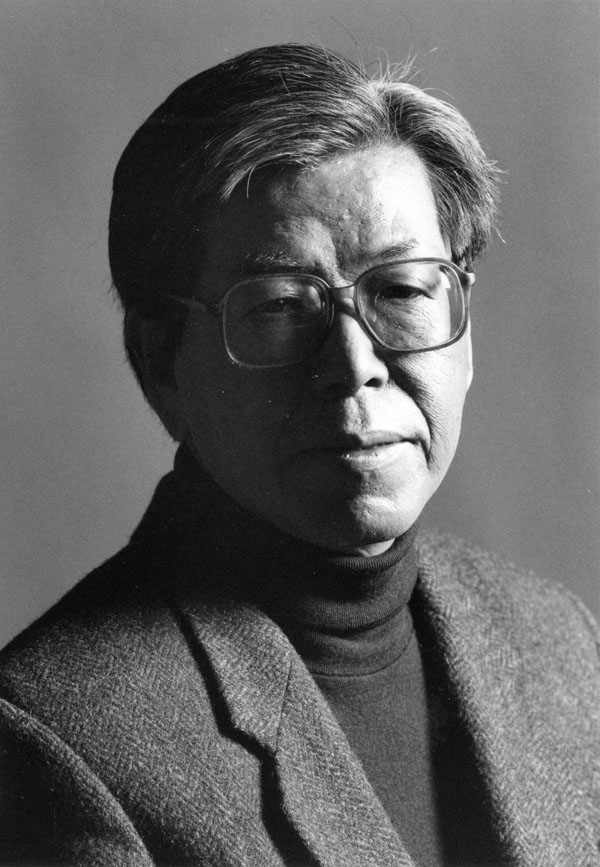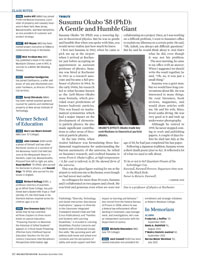Class Notes
 OKUBO’S EFFECT: Okubo made key contributions to theoretical particle physics. (Photo: Provided)
OKUBO’S EFFECT: Okubo made key contributions to theoretical particle physics. (Photo: Provided)Susumu Okubo ’58 (PhD) was a towering figure in theoretical physics. But he was so gentle and humble that when you spoke with him, you would never realize just how much he knew.
I first met Susumu in 1982, when he came to pick me up at the airport when I arrived at Rochester just before accepting an appointment as assistant professor of physics. Susumu was hired at Rochester in 1962 as a research associate and became a full professor of physics in 1964. In the early 1960s, his research led to what became known as the Gell-Mann–Okubo mass formula, which provided exact predictions of known hadronic particles. This was based on mathematical symmetries which had a major impact on the development of elementary particle physics. He also made significant contributions to other areas of theoretical particle physics.
In the late 1960s, when Andrei Sakharov was formulating three fundamental requirements for understanding the baryon asymmetry of the universe, he relied on Susumu’s research, and credited Susumu in verse: From S. Okubo’s effect, at high temperature / A fur coat is tailored, to fit the skewed form of the universe.
This was the giant figure waiting for me at the airport to welcome me to Rochester, even though we had never met earlier.
As colleagues for more than 30 years, Susumu and I collaborated on two papers and a book. He was kind and generous even when we were not collaborating on a project. Once, as I was working on a difficult problem, I went to Susumu’s office to explain my dilemma on a certain point. He said, “Oh, Ashok, you always ask difficult questions.” But he said he would think about it. And that’s what he did, even though it was not his problem.
The next morning, he came to my office with an answer. When I suggested we should write the result together, he said, “Oh, no, it was just a small thing.”
Susumu was a quiet man, but we would have long conversations about life. He was interested in many things. He read literature, book reviews, magazines, and would share articles with me. He and his wife, Mary, loved scuba diving. He was very good at it and took up underwater photography.
Although he retired in 1995, he never stopped coming to work and publishing papers. A couple of days before he died last July at the age of 85, he had just completed his last paper.
Following a Japanese tradition, Susumu wrote a short death poem (jisei no ku). It reflected a lot of what we used to talk about.
To be or not to be? Quantum Dream of the Schrödinger Cat.
Farewell, Farewell Forever. Departure time now to the Black Hole.
Never to Return. Farewell.
—Ashok Das
Das is a professor of physics at Rochester.

